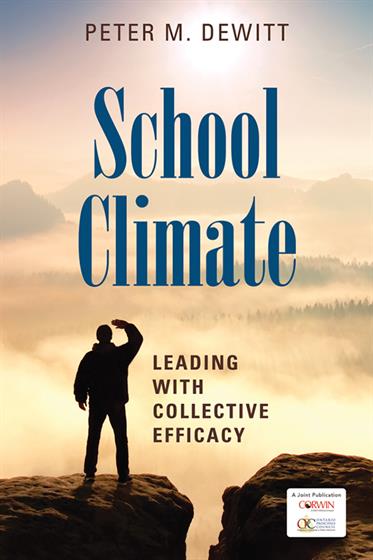Hands-on, Practical Guidance for Educators
From math,
literacy, equity, multilingual learners, and SEL, to assessment, school counseling,
and education leadership, our books are research-based and authored by experts
on topics most relevant to what educators are facing today.

Bestseller!
School Climate
Leading With Collective Efficacy
Centered on staff efficacy, this resource presents discussion questions, vignettes, strategies, and action steps to improve school climate, community stakeholder engagement, and, ultimately, student growth.
Product Details
- Grade Level: PreK-12
- ISBN: 9781506385990
- Published By: Corwin
- Year: 2017
- Page Count: 232
- Publication date: July 25, 2017
Review Copies
Review copies may be requested by individuals planning to purchase 10 or more copies for a team or considering a book for adoption in a higher ed course. Request review copy


